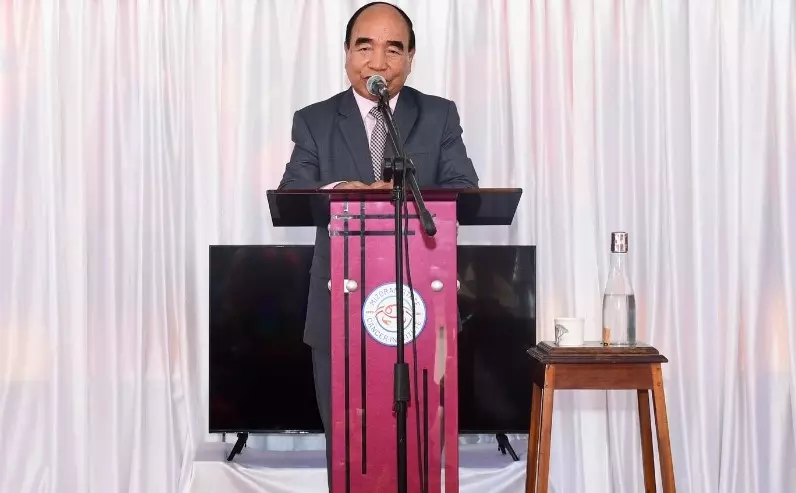
Mizoram poll results: What ZPM's historic win, Zoramthanga's loss mean to BJP
Zoramthanga was not only vocal against the Centre’s dealing with ethnic strife in neighbouring Manipur, but also took a defiant stand against the refugee policy of the Narendra Modi government.

Seventy-four-year-old former security in-charge of late Prime Minister Indira Gandhi, Lalduhoma scripted history on Tuesday (December 4) leading his nascent Zoram People’s Movement (ZPM) to a spectacular victory in Mizoram, bucking the trend of Mizo National Front (MNF) and Congress alternatively sharing power since the inception of the state in 1986.
The result will bring some cheer to the Bharatiya Janata Party (BJP) not merely because it has ended up with its best-ever tally, but for expanding its footprint beyond that of the Congress in the Christian-dominated state. Also, it would draw a bigger satisfaction from the fact that outgoing chief minister and MNF supremo Zoramthanga’s strong anti-BJP stand in the run-up to elections did not resonate electorally with the people.
Zoramthanga was not only vocal against the Centre’s dealing with ethnic strife in neighbouring Manipur, but also took a defiant stand against the refugee policy of the Narendra Modi government. The Union government was initially not keen to give refuge to the Chin refugees fleeing to India to escape “persecution” by Myanmar’s military regime. But Zoramthanga refused to toe the Centre’s line on the ground that Chin people are the ethnic cousin of the Mizos. He also called for a larger emotional integration of all Chin-Zo communities in a bid to emerge as a centrifugal force of Mizo nationalism.
Zoramthanga had even announced not to share the dais with Prime Minister Narendra Modi if he would come for campaigning in the state. The MNF is a constituent of the BJP-led National Democratic Alliance (NDA).
To avert any embarrassment neither Modi nor his second-in-command, Union Home Minister Amit Shah campaigned in the state.
The BJP leaders in private expressed apprehension that if Zoramthanga managed to ward off the anti-incumbency wave against his government by pitting Mizo nationalism against the saffron nationalism, it could set a worrying trend for the party’s other northeastern allies.
Much to the BJP’s relief, Zoramthanga's poll strategy did not work. Also, he failed to retain his Aizawl East-I seat.
The voters preferred to go with the ZPM, which has been equally vocal for the Zo unity. But its regionalist plank was not at odds with the Centre.
“The voters of the tiny northeastern state that has to largely depend on central funds to manage its economy must have thought it’s more pragmatic to be in working terms with the New Delhi rather than going for an all-out confrontation with the Centre,” pointed out Dipankar Roy, the editor-in-chief of the Meghalayan, a Shillong-based daily.
The ZPM has already hinted that even if it did not ally with the BJP in the state, it would support the saffron party government at the Centre.
Another factor that worked for the party was the whiff of fresh air it could offer to the electorate by giving tickets to several non-politicians, including two footballers and a radio jockey.
For the Congress, even a change of leadership failed to prevent a complete decimation. The grand old party could manage to win just one seat, down from five it had won last time.
The party went to elections for the first time in four decades without its tallest leader in the state and five-time chief minister Lal Thanhawla. The former chief minister retired from politics to pave the way for a leadership change in the party. His successor Lalsawta, who was a finance minister in the last Congress government, however, failed to enthuse the voters.
Lalsawta himself failed to win from the Aizawl West-III seat.

